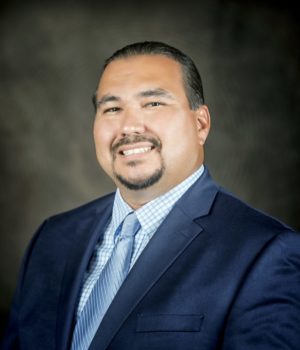As COVID-19 continues to rise and affect daily life, different First Nations have taken measures to try and stop the spread of the virus, some of which may have lasting economic consequences.
Since Wisconsin issued a “Safer at Home” order to encourage people to stay home, different Nations have been following suit to limit exposure to the virus. The Ho-Chunk Nation, among others, has cancelled or postponed upcoming events, closed down facilities to visitors and disbanded many departmental meetings. Nations such as Oneida have declared a public health emergency, prompting them to enact emergency measures.
“COVID-19 has prompted Oneida Nation to invoke several emergency measures throughout our tribal operations, from restrictions to closures,” Tehassi Hill, Oneida Nation’s chairman, said on a Facebook Livestream.
There are 11 federally recognized Nations in Wisconsin and at least four Nations have confirmed cases of the virus, including Oneida and Ho-Chunk. This has caused some Nations to ramp up social distancing measures in medical facilities to help prevent further spread.
The Ho-Chunk Nation moved all clinical appointments to over the phone. Lac du Flambeau Tribe, Stockbridge-Munsee Community and Lac Courte Oreilles Nation are just a few of the Nations that have administered multiple tests, anticipating the arrival of the virus.
“We’re really lucky,” Marlon White Eagle, Ho-Chunk Nation president, said in an interview with Henry Sanders (below). “We have a health department and two clinics that we operate and they are really essential in keeping that overflow of people going directly to hospitals. They’ve been great and they rely a lot on grant funding.”
For the most part, different First Nation health departments state that they are tracking the virus and urge their members to follow national guidelines.
Though Nations are urging their members to stay home in compliance with the order, it has taken a toll on their economy, particularly with the gaming industry. Most Nations have, by now, closed their casinos which has hurt their economy and initiated mass layoffs. Ho-Chunk Gaming, in particular, furloughed almost 3,000 employees, 2,100 of them being gaming employees.
“We’re losing a lot of revenue every day we’re closed and I’m not sure how we can recoup some of that revenue,” White Eagle said. “I was able to offer some admin leave for the employees and we tried to bring them in to do some deep cleaning and now we’re just standing by waiting for the opportunity to open back up.”
Ho-Chunk Nation closed their Madison Casino as early as March 17 and saw a spike at their ancillary casino site in Tomah because it was still open. Once there was a confirmed case in La Crosse County, Ho-Chunk then closed that site as well. All casinos will be closed until further notice.
“Right now, I’m not sure if there’s any way we can recover the revenue loss.” White Eagle said. “We are preparing for our layoffs to be at least three months but it could stretch to six months. We’re also doing temporary leave and employees on layoff can maintain their health benefits and If we have to go to permanent layoffs we’ll have to decide that within a month. We remain optimistic.”
Oneida Nation’s workforce was placed in layoff status after they closed casinos on March 18.
“It is public knowledge the Nation’s Gaming Facilities closed on March 18th and the Nation’s main source of income was immediately impacted,” a statement from the business committee said. “This reality has been openly communicated to the Nation’s employees; also communicated was the Nation’s commitment to pay employees for as long as financially possible.”
Ho-Chunk, Oneida and other Nations have been updating their sites frequently as new information becomes available. Additionally, many Nations have taken to social media for live streaming updates and engaging with their members.
For now, Nations continue to evaluate the situation and anticipate when they can reopen operations. Until then, the Nations are also looking at supplementary funds, including the recent $80 million fund for tribes, tribal organizations and urban Indian organizations from the Center for Disease Control and Prevention.
“There’s gonna be some money coming in to assist tribal governments,” White Eagle said. “We still haven’t heard how we’re going to get that or apply for that aid but we’ll definitely put our name in the hat for any of that funding to come back in.”










